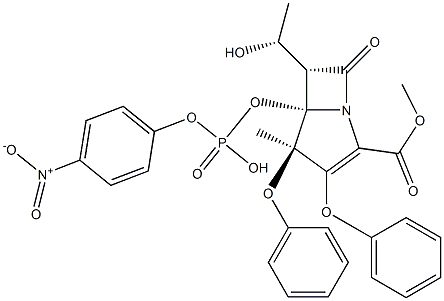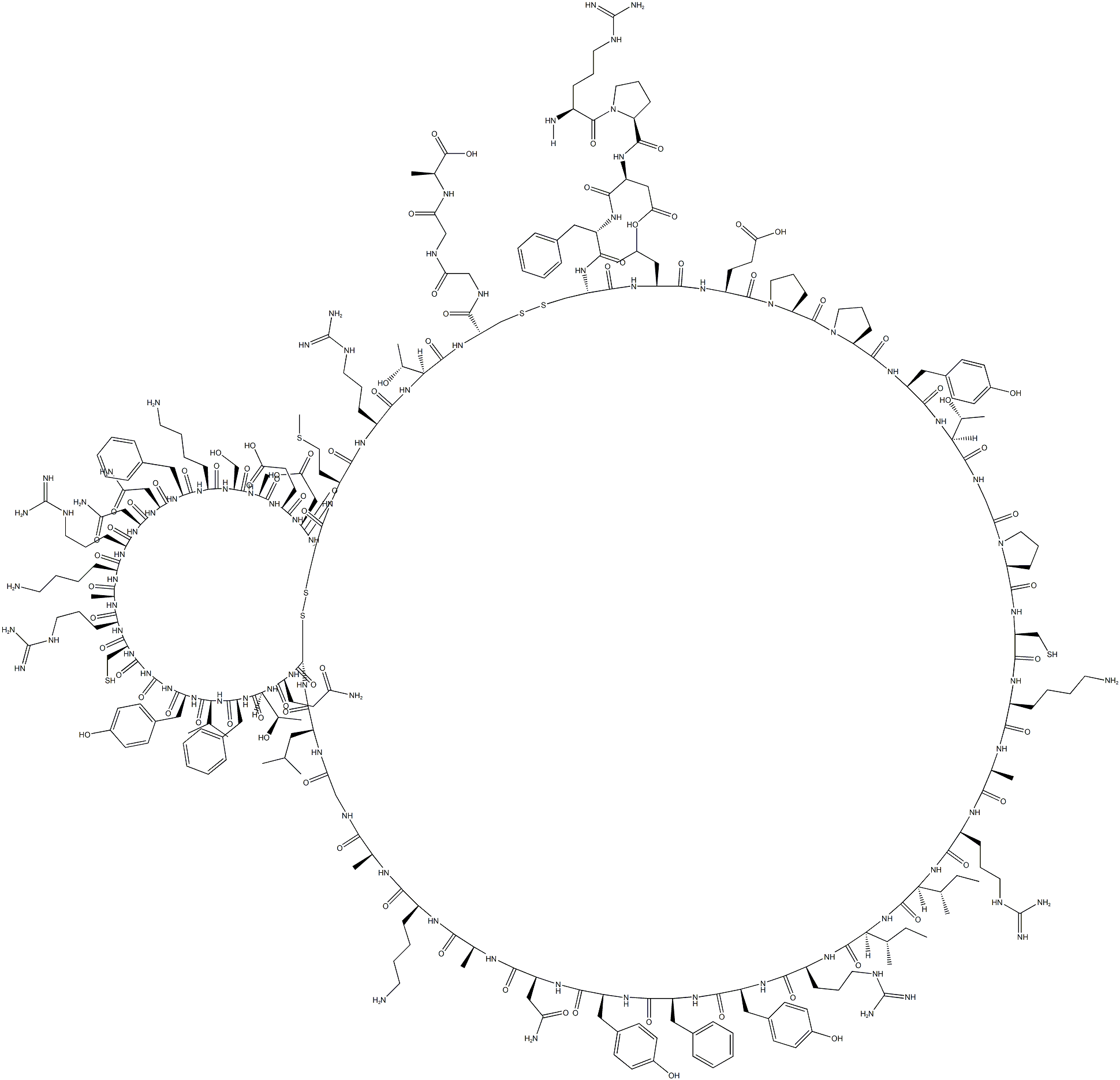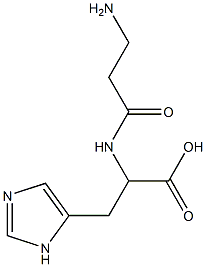Proteinase K
Synonym(s):Endopeptidase K;Proteinase K from Tritirachium album
- CAS NO.:39450-01-6
- Empirical Formula: C29H27N2O12P
- Molecular Weight: 626.504641
- MDL number: MFCD00132129
- EINECS: 254-457-8
- SAFETY DATA SHEET (SDS)
- Update Date: 2025-12-26 18:10:20

What is Proteinase K?
Description
Proteinase K is a proteolytic enzyme (a serine protease) naturally found in the mold Tritirachium album. In solution, it is stable over a pH range of 4.0–12.5 with an optimum of pH 8.0, and a temperature range of 25°C–65°C. The enzyme has two binding sites for Ca++, though in the absence of this divalent cation some catalytic activity is retained. Maximum proteinase K activity is observed with the inclusion of 1 mM Ca++ in the reaction buffer. Proteinase K digestion is routinely performed at 50°C, and occasionally in the presence of EDTA to inhibit labile, Mg++-dependent nucleases. Proteinase K is prepared commonly as a 20 mg/mL stock solution in sterile water (stable for 1 year at ?20°C) or in a solution of 50 mM Tris, pH 8.0, 1 mM CaCl2 (stable for months at 4°C). It is generally used at a working concentration of up to 50 μg/mL in any of a number of buffer formulations, including those that contain as much as 0.5% SDS[1].
Chemical properties
Powder beige
The Uses of Proteinase K
A stable and highly reactive serine protease; used for protein and nucleic acid isolation.Proteinase K is used in the purification of RNA and DNA from tissues or cell lines. It finds application in protein modification, determination of enzyme localization and inactivation of RNases/DNases during nucleic acid extraction. It is also used in mitochondria isolation and removal of endotoxins bound to cationic proteins like lysozyme and ribonuclease A. Further, it is involved in the treatment of paraffin embedded tissue sections in order to expose antigen binding sites for antibody labeling.
The Uses of Proteinase K
Useful for the proteolytic inactivation of nucleases during the isolation of DNA and RNA.
Removes endotoxins that bind to cationic proteins such as lysozyme and ribonuclease A.
Reported useful for the isolation of hepatic, yeast, and mung bean mitochondria
Determination of enzyme localization on membranes
Treatment of paraffin embedded tissue sections to expose antigen binding sites for antibody labeling.
Digestion of proteins from brain tissue samples for prions in Transmissible Spongiform Encephalopathies (TSE) research.
What are the applications of Application
Proteinase K [EC 3.4.21.64] is a stable and highly reactive serine protease from Tritirachium album.
Definition
Proteinase K cleaves peptide bonds next to the carboxyl-terminal of aromatic amino acids, hydrophobic amino acids and sulfuric amino acids, within the polypeptide chain. Hence Proteinase K can act as an endoprotease on a wide range of protein substrates. Because of its proteolytic preferences, it is a member of the subtilisin group of serine proteases. The K in Proteinase K refers to its ability to digest Keratin protein found in hairs, nails and hooves. Proteinase K is an essential reagent in molecular biology labs because it is useful in isolating DNA and RNA molecules by degrading and inactivating proteins. Fungus Tritirachium album Limber naturally produces proteinase K.
General Description
Proteinase K, an extracellular endopeptidase is synthesized by the mold, Tritirachium album Limber. Proteinase K belongs to a new subfamily of the subtilisins. It is a 277 amino acid protein and is characterized with an unhydrolyzed protein chain and autolyzed polypeptide chains.
Biochem/physiol Actions
Proteinase K catalyzes the hydrolysis of keratin.
References
[1] Farrell, R. “Creating a Ribonuclease-Free Environment.”RNA Methodologies (Sixth Edition) 2023: 51-70.
Properties of Proteinase K
| storage temp. | 2-8°C |
| solubility | H2O: 10 mg/mL, slightly hazy, brown-yellow |
| form | powder |
| color | white |
| PH | pH7.5~12 |
| Water Solubility | Miscible with water. |
| CAS DataBase Reference | 39450-01-6 |
Safety information for Proteinase K
| Signal word | Danger |
| Pictogram(s) |
 Health Hazard GHS08 |
| GHS Hazard Statements |
H315:Skin corrosion/irritation H319:Serious eye damage/eye irritation H334:Sensitisation, respiratory |
| Precautionary Statement Codes |
P261:Avoid breathing dust/fume/gas/mist/vapours/spray. P264:Wash hands thoroughly after handling. P264:Wash skin thouroughly after handling. P280:Wear protective gloves/protective clothing/eye protection/face protection. P284:Wear respiratory protection. P302+P352:IF ON SKIN: wash with plenty of soap and water. P305+P351+P338:IF IN EYES: Rinse cautiously with water for several minutes. Remove contact lenses, if present and easy to do. Continuerinsing. |
Computed Descriptors for Proteinase K
| InChIKey | CDWGKFQEIBBJOF-BIZWTRPUNA-N |
| SMILES | N12[C@](OP(O)(OC3=CC=C([N+]([O-])=O)C=C3)=O)([C@H]([C@H](O)C)C1=O)[C@](C)(OC1=CC=CC=C1)C(OC1=CC=CC=C1)=C2C(OC)=O |&1:1,16,17,22,r| |
New Products
4,4-Difluoropiperidine hydrochloride tert-butyl 9-methoxy-3-azaspiro[5.5]undecane-3-carboxylate Indole Methyl Resin N-Isopropylurea N,N-Dicyclohexylcarbodiimide(DCC) MELDRUMS ACID 5-METHYLISOXAZOLE-4-CARBOXYLIC ACID Magnessium Bis glycinate Zinc ascorbate 1-bromo-2-butyne 2-acetamidophenol 9(10H)-anthracenone Erythrosin B, 4-Piperidinopiperidine 2-((4-morpholinophenylamino) (methylthio) methylene) malononitrile 2,4-dihydroxybenzaldehyde 3-(4-morpholinophenylamino)-5-amino-1H-pyrazole-4-carbonitrile Methyl 2-methylquinoline-6-carboxylate 2,6-dichloro-4-nitropyridine 4-Bromo-2-chlorobenzonitrile 2-(benzylamino)acetic acid hydrochloride 4-(tert-Butoxycarbonylamino)but- 2-ynoic acid 3,4-dihydro-2H-benzo[b][1,4]dioxepine 1-Phenyl-1-cycloprppanecarboxylicacidRelated products of tetrahydrofuran








You may like
-
 Proteinase K Lyophilized Powder CAS 39450-01-6View Details
Proteinase K Lyophilized Powder CAS 39450-01-6View Details
39450-01-6 -
 Proteinase K ex. Tritirachium Album (Type A) for molecular biology CAS 39450-01-6View Details
Proteinase K ex. Tritirachium Album (Type A) for molecular biology CAS 39450-01-6View Details
39450-01-6 -
 Proteinase K ex. Pichia Pastoris (Type E - Recombinant) for molecular biology & PCR CAS 39450-01-6View Details
Proteinase K ex. Pichia Pastoris (Type E - Recombinant) for molecular biology & PCR CAS 39450-01-6View Details
39450-01-6 -
 Proteinase K from Tritirachium album CAS 39450-01-6View Details
Proteinase K from Tritirachium album CAS 39450-01-6View Details
39450-01-6 -
 Proteinase K from Tritirachium album CAS 39450-01-6View Details
Proteinase K from Tritirachium album CAS 39450-01-6View Details
39450-01-6 -
 Proteinase K from Tritirachium album CAS 39450-01-6View Details
Proteinase K from Tritirachium album CAS 39450-01-6View Details
39450-01-6 -
 Proteinase K from Tritirachium album CAS 39450-01-6View Details
Proteinase K from Tritirachium album CAS 39450-01-6View Details
39450-01-6 -
 Proteinase K from Tritirachium album CAS 39450-01-6View Details
Proteinase K from Tritirachium album CAS 39450-01-6View Details
39450-01-6
